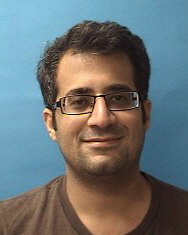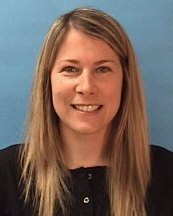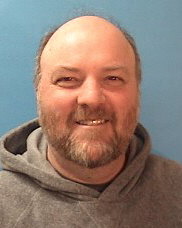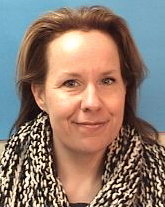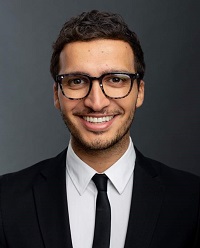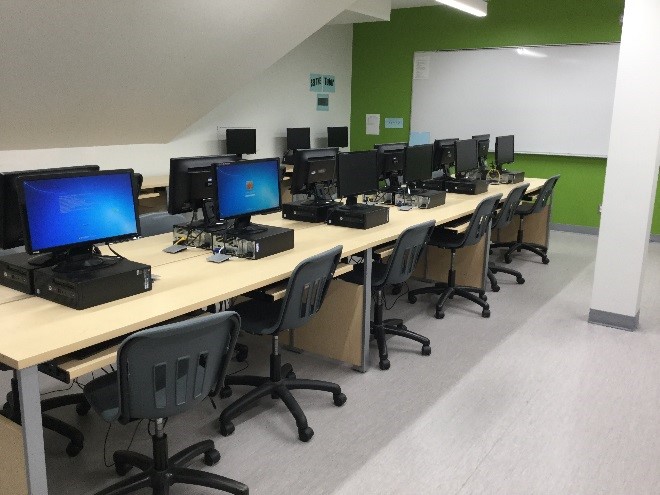Welcome
The Social Science Methods Department offers three compulsory courses in methodology that form an integral part of the Social Science Program at John Abbott College. The courses are Quantitative Methods in Social Science Research (QM), Social Science Research Methods (RM) and Integration of the Social Sciences (ISS). A multidisciplinary approach is emphasized, and the courses are taught by faculty from various social science disciplines.Some of the resources available to students include the Social Science Drop-In Lab in H-431, where peer tutors help students with QM, RM and ISS. A lab technician is also available to aid students with course-related problems and research..
Members of the Department
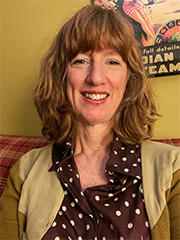
Burpee, Jessica
Coordinator, Environmental Studies Certificate514-457-6610 ext. 5059
HO-329
jessica.burpee@johnabbott.qc.ca
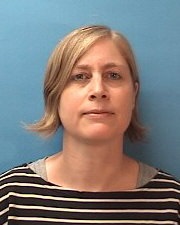
Carle, Emmanuelle
Methods514-457-6610 ext. 5168
H-306
emmanuelle.carle@johnabbott.qc.ca
Emmanuelle Carle has been a member of John Abbott College’s Department of History since 2006. She holds a Bachelor degree in History (Specialization) from Concordia University, as well as a Masters from Université de Montréal and a PhD in History from McGill University. With a FCAR scholarship and a Travel Grant, she moved to Paris to research Gabrielle Duchene (1870-1954), French feminist activist, unionist, pacifist, antifascist, fellow traveller of the French Communist Party and an innovator as a propagandist. Duchêne symbolizes the ideological congruence of these movements. She has published her findings in French History and in the Archives du Féminisme (Université d’Angers).
Emmanuelle Carle has taught at McGill (First World War, Modern European History), UQAM (Histoire des Femmes au 19e et 20e siècles) and at Concordia (Intro and Modern European History and History of France since 1871). At JAC, she teaches Western Civilization and Modern History, but has also taught History of Science and Methodology in the Liberal Arts Department, Learning Techniques (Pathways), Research Methods and Integration to the Social Sciences.
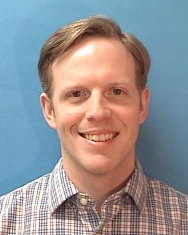
Charest, Julien
Methods514-457-6610 ext. 5983
H-315
julien.charest@johnabbott.qc.ca
BACKGROUND: Bachelor of Arts - History & East Asian Studies – Université de Montréal
Masters of Arts - History – McGill University
EXPERTISE: history of Japan and Asia
COURSES TAUGHT: History of Western Civilization, Research Methods in the Social Sciences,
Integration in the Social Sciences
PROFESSIONAL EXPERIENCE: I lived and taught English second language for 1 year in northern Japan.
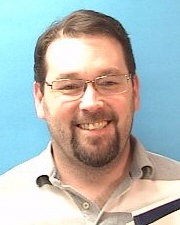
Desjardins, David
Methods514-457-6610 ext. 5878
H-319
david.desjardins@johnabbott.qc.ca
Education
David Desjardins has been a member of the Department of Economics at John Abbott College since the winter semester 2000. He Currently holds a Bachelor of Arts in Economics from Concordia University, graduating with honours in Econometrics. Having done all of the course work and passed comprehensive examinations, he holds a Ph.D. A.B.D (all but dissertation), which he may finish should the timing prove right. He has also studied at the University of British Columbia (Economics) and McGill University (Law).
Research
His research interests are in the area of financial economics and econometrics as it pertains to financial markets; more specifically, the area of liquidity, asset pricing, and the term structure of interest rates.
Teaching
Professor Desjardins has taught undergraduate and graduate courses at the university level along with college level classes since 1996. Given his specialty in Econometrics and statistics, much of the teaching centres around statistics and its applications.
College courses
• Introductory macroeconomics
• Introductory microeconomics
• Quantitative Methods in the Social Sciences
• Research Methods in the Social Sciences
• Integration in the Social Sciences
University courses
• Introductory macroeconomics and microeconomics
• Introductory statistics
• Intermediate macroeconomics and microeconomics
• Econometrics (theoretical and applied)
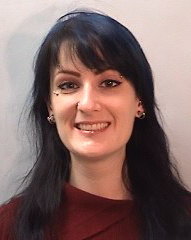
Gloux, Sabrina
Faculty, Collection Manager514-457-6610 ext. 5117
H-334
sabrina.gloux@johnabbott.qc.ca
Courses taught: Introduction to Anthropology, The Anthropology of Violence and Conflict, Forensic Anthropology and Human Rights, Forensic Anthropology, Social Science Research Methods, Quantitative Methods in the Social Sciences, and Integration in the Social Sciences
Biographical information: Growing up around the world made me easily and quickly accustomed to many different cultures which is probably the main reason why I naturally oriented myself towards Anthropology. I came to Montreal 16 years ago to study Physical Anthropology in which I completed both a B.Sc. and a M.Sc. degree at the Université de Montréal. Being interested in Molecular Biology as well as Forensic Sciences, I also completed a certificate in Ancient DNA extraction and analysis at the Paleo-DNA Lab of the Lakehead University in Thunder Bay, Ontario; and two certificates in Forensic Medicine and Crime Scene Investigation from the Institut des Hautes Etudes en Criminologie in Paris, France. I am currently pursuing a PhD in Biological Anthropology at the Université de Montréal.
My main areas of interest are paleoanthropology, human evolution, functional anatomy, comparative anatomy, human osteology, skeletal biology, forensic anthropology, and ancient DNA. Specific research interests include the understanding of the macroscopic and microscopic skeletal adaptations to mechanical loads and variations, to better interpret skeletal markers of activity patterns and related injury patterns in osteological remains.
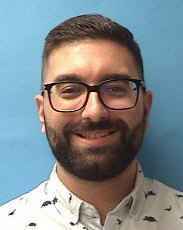
Guiducci, Dario
Faculty, Chairperson514-457-6610 ext. 5849
H-336
dario.guiducci@johnabbott.qc.ca
Courses taught:
-
- In Anthropology: Introduction to Anthropology, Archaeology of Early Civilizations; Human Evolution, Archaeology of the Americas, Anthropology and Environment, Ancient Aliens and Other Strange Beliefs: Pseudoarchaeology, Understanding the Evolution Creationism Controversy
- In Social Science Methods: Introduction to Social Science (ISS), Méthode de Travail Intellectuel (MTI), Research & Qualitative Methods (RQM), Quantitative Methods (QM), Integration in the Social Sciences (SSIP)
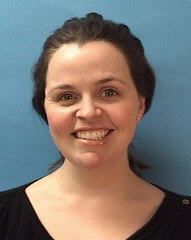
Hope, Nicola
Methods514-457-6610 ext. 5102
H-307
nicola.hope@johnabbott.qc.ca
Nicola holds a Bachelor of Social Science in Political Science from the University of Ottawa, and a Master of Arts in International Affairs with a specialization in National and Subnational Aspects of Development from the Norman Paterson School of International Affairs at Carleton University. She graduated from the Honours Social Science Program at John Abbott College in 2001.
While in Ottawa, Nicola held various positions on Parliament Hill, though most of her career has been spent in the international non-profit sector. For 10 years she coordinated healthcare and education programs at the World Federation of Hemophilia where she contributed to the improvement of access to care and treatment for people with inherited bleeding disorders all over the world.
Nicola is teaching Modern Political Ideas and Quantitative Methods. She joined the Political Science department in 2017.
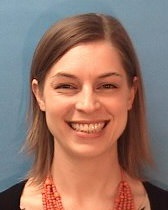
Humes, Catherine
514-457-6610 ext. 5817
H-305
catherine.humes@johnabbott.qc.ca
Catherine Humes has been a member of the Department of History at John Abbott College since the fall semester of 2012. She holds a Bachelor of Arts in Religious Studies and History/Classics from McGill University, as well as a Master of Arts in the History and Philosophy of Religion from Concordia University, and a Bachelor of Education with a specialization in History and Religion from the University of Toronto (OISE). Her interests include the history of religion, gender and social justice, and pedagogy centered on critical thinking and student engagement. She is a member of the Harassment Awareness Committee and participates in the Women’s Studies and Gender Relations Certificate at the College
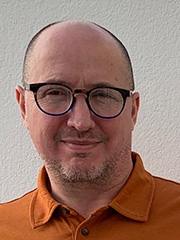
Leblanc, André
514-457-6610 ext. 5062
H-317
andre.leblanc@johnabbott.qc.ca
André LeBlanc began his university studies in the sciences, earning a BSc in biology and psychology from the University of New Brunswick in 1990. He went on to complete his Master’s (1993) and PhD (2000) at the Institute for the History and Philosophy of Science and Technology at the University of Toronto.
After completing his PhD, he was a postdoctoral fellow at the Centre interuniversitaire de recherche en science et technologie (CIRST) at the Université du Québec à Montréal (2000-2002) and in the Department of the History of Science at Harvard University (2002-2003). In 2004, he moved to Halifax, Nova Scotia, where he taught for three years as a visiting assistant professor in the History of Science and Technology Programme at the University of King’s College. In 2008, he joined the history department at John Abbott College, where he teaches courses in world history and the history of science. Since 2011, he has taught an undergraduate seminar on the Historical, Philosophical, and Social Aspects of Science at the Science College of Concordia University.
Professor LeBlanc’s research interests include the work of the Belgian polymath Joseph Delbœuf (1831-1896), the nature of hypnosis and the placebo effect, the relationship between science and religion, the role of mind in evolution, and the problem of free will from the perspective of science. He has published in the Journal of the History of the Behavioral Sciences, History of Science, Scientia Canadensis, Human Nature Review, The Journal of Mind and Behavior, Theory & Psychology, Biofeedback, Journal of Theoretical and Philosophical Psychology, and the Journal of Consciousness Studies.
![Maisonville, Derek : [he/him/his/they/them/theirs]](https://departments.johnabbott.qc.ca/wp-content/uploads/2016/02/P00013354-Derek-Maisonville-HPR.jpg)
Maisonville, Derek
[he/him/his/they/them/theirs]514-457-6610 ext. 5495
HA-113
derek.maisonville@johnabbott.qc.ca
B.A. York University (Political Science)
M.A. McMaster University (Political Science)
ABD Ph.D. York University (Political Science)
Derek teaches classes on colonialism, race and gender, Indigeneity, state (and non-state) violence. Derek enjoys popular culture, the Toronto Blue Jays, March Madness, foraging for fungi, beading, painting miniatures, the Oxford comma, opposing fascism, and talking about himself in the third person.

Nazneen, Roksana
Methods514-457-6610 ext. 5123
H-346
roksana.nazneen@johnabbott.qc.ca
I completed MA in Sociology from Concordia University in 1993. The title of my thesis was “Foreign Aid in Developing Countriesâ€. I received Ph.D. in Humanities (Sociology, Economics and History) from Concordia University in 2000.
The area of my research interest was to study the experience of immigrant adaptation in Canadian society. I taught at McGill (as a graduate student), Concordia and Brock University before coming to teach at John Abbott in 2006.
I received the Queen Elizabeth the 2nd Diamond Jubilee Award issued by the Governor General of Canada in 2012.
My current research interests include immigration, ethnic minority experience, and identity politics.
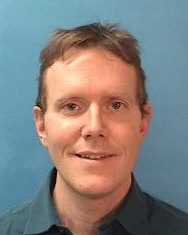
Osowski, Edward
Methods514-457-6610 ext. 5100
H-305
edward.osowski@johnabbott.qc.ca
Edward Osowski received his Ph.D. in History from Pennsylvania State University in 2002 with a specialization in Latin American History. While on a Fulbright scholarship, he conducted archival research on colonial indigenous history in Mexico City and has presented his findings at conferences and seminars at Harvard University, UCLA, the Université de Montréal and other institutions. Before joining the faculty of John Abbott College in 2006, he taught at McGill University, Concordia University, and the University of Northern Iowa. In addition to having several publications to his credit, he is co-editor of Mexican History : a Primary Source Reader, forthcoming from Westview Press in 2009. He brings his love of the history of music, myths, and ideas to the courses that he teaches at John Abbott College and believes that students new to history have the ability to do the rigorous work of interpretation, writing, and discussion.
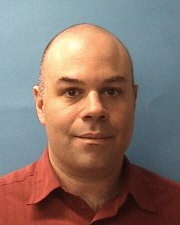
Racine, Felix
Methods514-457-6610 ext. 5714
H-306
felix.racine@johnabbott.qc.ca
Félix Racine began his bachelor in Political Science at the Université de Montréal but somehow graduated in History, which he pursued at the doctoral level at Yale. Somewhat fittingly, he is now part of a department where historians and political scientists work together. Before coming to John Abbott, Félix taught Ancient History at the universities of St. Andrews (Scotland) and McGill. His interests include the history of geographical knowledge, pre-modern travel and the reception of Greek and Latin science during the Renaissance. He is also on a quest to find the best historical comics.
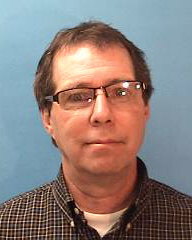
Russell, William
Methods514-457-6610 ext. 5101
H-303
william.russell@johnabbott.qc.ca
I have been a member of John Abbott College’s Department of History, Economics and Political Science (HEPS) since 1993. Born and raised in Montreal, I attended Concordia University where I earned a B.A. and M.A., specializing in Russian and Modern European History. For the most part, I teach Western Civilization and Modern History courses, but have also taught Research Methods and Integration in the Social Sciences (ISS). I have been privileged to take students on Historical and Archaeological tours to Europe and North Africa with Professor John Serrati for the last eleven years. What I enjoy most about teaching at the College is the everyday interaction with students and members of the JAC community. John Abbott is both a great place to go to school and work.
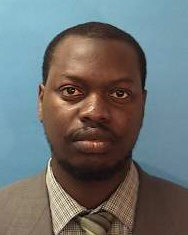
Seck, Medoune
Methods514-457-6610 ext. 5068
H-311
medoune.seck@johnabbott.qc.ca
Medoune M. Seck is a native of Senegal. He is fluent in Wolof, French, English and has limited working proficiency in Arabic. His skills in the use of technology are current and broad. He has used several instructional technologies such as Camtasia, showme application, and Wacom bamboo tablet to produce numerous instructional videos that are effectively improving the students’ learning experience. He is a fervent proponent of the integration of technology into the learning and teaching process. He sees it as potential cost-cutter for the implementation of well proven active learning strategies.
Mr. Seck holds Bachelor of Arts and a Master of Arts degrees in economics (currency and finance) from Paris I Pantheon-Sorbonne. He earned a Master of Arts in economics and a Graduate Certificate in Federal Statistics from George Mason University. For several years , Mr. Seck has taught economics at NOVA the largest public educational institution in Virginia and the second-largest community college in the United States, and he has been teaching economics at John Abbott since 2014.
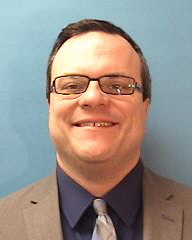
Serrati, John
Methods514-457-6610 ext. 5992
H-319
john.serrati@johnabbott.qc.ca
Education: PhD, University of St Andrews, 2001
Research interests:
The main area of my research involves the modalities of Roman imperialism and early provinciae. I focus primarily on the mid- and late Republic, looking at Roman provincial administration, the economy, and the non-military expansion of control in conquered territories. Sicily acts as a microcosm for this line of inquiry; here, I concentrate on the role of the island in the Roman Republic and the formation of the earliest proviniciae. Included in this project is an analysis of Cicero’s Verrine Orations. The aforementioned areas cross over with my broader field of study, which involves the examination of monetary and non-monetary capital in the military sphere. My research in this field looks at the role that royal and state economies played in projections of power and in providing rulers and ruling elites the means to wage war.
Other ongoing projects include the reception of classical Sparta in the nineteenth and twentieth centuries, the perception of space in the early Roman forum, and a greater study of ancient imperialism.
Publications:
Serrati, J., Beck, H. and Jehne, M. (Eds.) (2016). Money and Power in the Roman Republic. Brussels: Latomus.
Serrati, J. (2016). Early Provincial Economies in the West: The lex Hieronica and the Financing of Roman Conquest. In H. Beck, M. Jehne and J. Serrati (Eds.) Money and Power in the Roman Republic. Brussels: Latomus.114-130.
Serrati, J. (2016). War, Weaponry, and Empire. In N. Dalmackie et al. (eds), The Blackwell Encyclopaedia of Empire. Oxford: Blackwell: 1-13.
Serrati, J. (2015). Éditer les fragments des historiens romains. Latomus, 74, 1077-1083.
Serrati, J. (2013). Government and Warfare. In H. Beck (Ed.). A Companion to Ancient Greek Government. Oxford: Blackwell. 317-331.
Serrati, J. (2013). The Hellenistic Experience with War: Stagnation or Development? In B. Campbell and L. Trittle (Eds.) The Oxford Handbook of Warfare in the Classical World. Oxford: Oxford University Press.179-198.
Serrati, J. (2012). Various entries. In R.S. Bagnall et al. (Eds.). The Encyclopedia of Ancient History. Oxford: Blackwell
Serrati, J. (2012). Imperial Expansion and the Fall of the Roman Republic: Post Hoc, Propter Hoc. In D. Hoyos (Ed.) The Companion to Roman Imperialism. Leiden: Brill. 155-168.
Serrati, J. and Covino, R.J. (2012). Euripides’ Bacchae and the Greek Theatre in Syracuse. Didaskalia 9, 38-44.
Serrati, J. (2011). The Rise of Rome to 264. In D. Hoyos (Ed.). The Blackwell Companion to the Punic Wars. Oxford: Blackwell. 9-27.
Serrati, J. (2011). Neptune’s Altars: The Treaties Between Rome and Carthage (509-226 BC). (Republication of 2006 article, infra). The Best Classical Scholarship of the Last Sixty Years: Classical Quarterly Special Issue. 100-121.
Serrati, J. (2008). A Syracusan Private Altar and the Development of Ruler-Cult in Hellenistic Sicily. Historia 57, 80-91.
Serrati, J. (2007). Warfare and the State. In P. Sabin, H. van Wees, and L.M. Whitby (Eds.). The Cambridge History of Greek and Roman Warfare. Cambridge: Cambridge University Press. 461-497.
Serrati, J. (2006). Neptune’s Altars: The Treaties Between Rome and Carthage (509-226 BC). Classical Quarterly 66, 113-134.
Serrati, J., Anglim, S. et al. (2002). Fighting Techniques of the Ancient World 3000 BC-AD 500: Equipment, Combat Skills, and Tactics. New York: St Martin’s, 256 pp.
Serrati, J. and Smith, C.J. (Eds.) (2000). Sicily from Aeneas to Augustus: New Approaches in Archaeology and History. Edinburgh: Edinburgh University Press. 241 pp.
Serrati, J. (2000). Garrisons and Grain: Sicily between the Punic Wars. In C.J. Smith and J. Serrati (Eds.). Sicily from Aeneas to Augustus: New Approaches in Archaeology and History. Edinburgh: Edinburgh University Press, 115-133.

Shillington, Laura
Methods514-457-6610 ext. 5592
H-344 - Geosciences
laura.shillington@johnabbott.qc.ca
Laura joined the Geosciences Department in 2013. She has a BSc in Geography from the University of Victoria, an MSc in Forestry from Virginia Polytechnical Institute and State University, and a PhD in Geography from York University. Her research interests are in gender, political ecology and urban social-environmental justice with a regional focus on Central America.
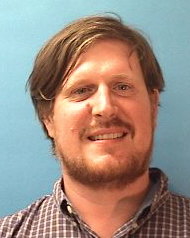
Sotiron, Jean-Michel
Methods514-457-6610 ext. 5535
H-304 - History, Economics, Political Science (HEPS)
jean-michel.sotiron@johnabbott.qc.ca
Professor Sotiron has been a member of John Abbott College’s Political Science Department since 2012. He holds a Bachelor’s degree in Political Science from Concordia University, as well as a Master’s in Political Science from UQAM; his thesis was on Hindu nationalism. He also serves as a member of the Methods committee of the College.
With regards to student life, Professor Sotiron is involved with the JAC Model UN programme as well as the annual inter-collegiate debate event hosted at the college. What Professor Sotiron enjoys most about teaching at JAC is fostering healthy debates in class by discussing political ideas with students.
Courses taught: Modern Political Ideas 385-250-AB
Introduction to Political Science 385-100-AB
Integration in the Social Sciences 300-301-AB
Research Methods 300-300-AB
Quantitative Methods 360-300-RE
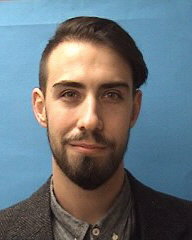
Tosaj, Nicholas
Methods514-457-6610
nick.tosaj@johnabbott.qc.ca
Education:
PhD: University of Toronto (In Progress)
Masters: Concordia University
Hon. Bachelors: Concordia University
Research Interests:
My research interests gravitate around food history, particularly in the context of empires and colonialism. My PhD focuses on the place of bread and staple carbohydrates in the Modern French Colonial Empire while my MA centered on the role of Auguste Escoffier’s cooking in diffusing French culture through British hotels. Field work for both degrees has taken me to archives in France, Cambodia, Vietnam, Martinique and Morocco. I am a current affiliate of the Culinaria Research Centre as well as being a SSHRC Doctoral Fellow. I have been fortunate enough to present my research at Harvard University, to the Association for the Study of Food and Society as well as in other academic contexts. I enjoy using food and other diverse sources to demonstrate to my students the range of different approaches which can be used to interpret history.
Publications:
Tošaj, N. Finding France in Flour: Communicating Colonialism in French Indochina through Bread. In Cecilia Leong-Salobir (Ed.) The Routledge Handbook of Food in Asia. (Forthcoming)
Tošaj, N. Weaving the Imperial Breadbasket: Nationalism, Empire and the Triumph of Canadian Wheat, 1890-1940. Journal of the Canadian Historical Association, 2017, Volume 28, Issue 1, pp. 249 – 275.
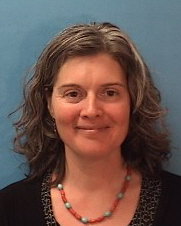
Vandervort, Jessica
Methods514-457-6610 ext. 5978
H-317
jessica.vandervort@johnabbott.qc.ca
Jessica Vandervort has been a member of John Abbott College’s Department of History since 2006. She holds a Bachelor of Arts degree in History with a minor in Women’s Studies from McGill University (1994) and a Master’s degree in History from Concordia University (2003). Her thesis examined the diaries of a female adolescent who lived in Victorian Montreal. She teaches in both the History and the Research Methods departments and is a member of the Teaching and Learning Environment and Pathways committees. She helps her students cultivate a more active role in their own learning through participation in classroom workshops and discussions. This social historian believes that “success in the classroom has been attained when students have developed a critical lens and a deep comfort with unanswered questions.”
Courses
Social Science Drop-In Lab
Social Science Drop-In Lab
H-431
Open Monday to Friday
All day
- For use by Social Science students on a drop-in basis
- Computers, textbooks, study guides and reference materials are available for course-related problems, research and applications. Software includes Microsoft Office, DIVA-GIS, Q-GIS, and Inspiration. The lab is also connected to the Internet.
- Peer tutors for methods courses (QM, RM and ISS) are available at posted times (posted on lab door around week 4).
Resources/Links
Resources / Links
- Basics of APA Style Tutorial (with audio)
- APA Formatting and Style Guide – Purdue University Online Writing Lab
- Cite It (APA and MLA Styles Tutorial) – works best in Chrome/Safari
- Concordia University Library
- McGill University Library
- Library and Archives Canada
- Statistics Canada
- NationMaster Statistics
- Royal Statistical Society
- Social Science Research Network
- Gallup Polls
- Nielsen Media Research
- Movie Mapper: The Brand Hype Database
- Health Canada Online
- Canadian Council on Social Development
- World Health Organization – Data and Statistics
- The History Place
- UN Population Information Network
- UN Food and Agricultural Organization
- Government of Canada
- Bank of Canada Review
- World Bank – Data


